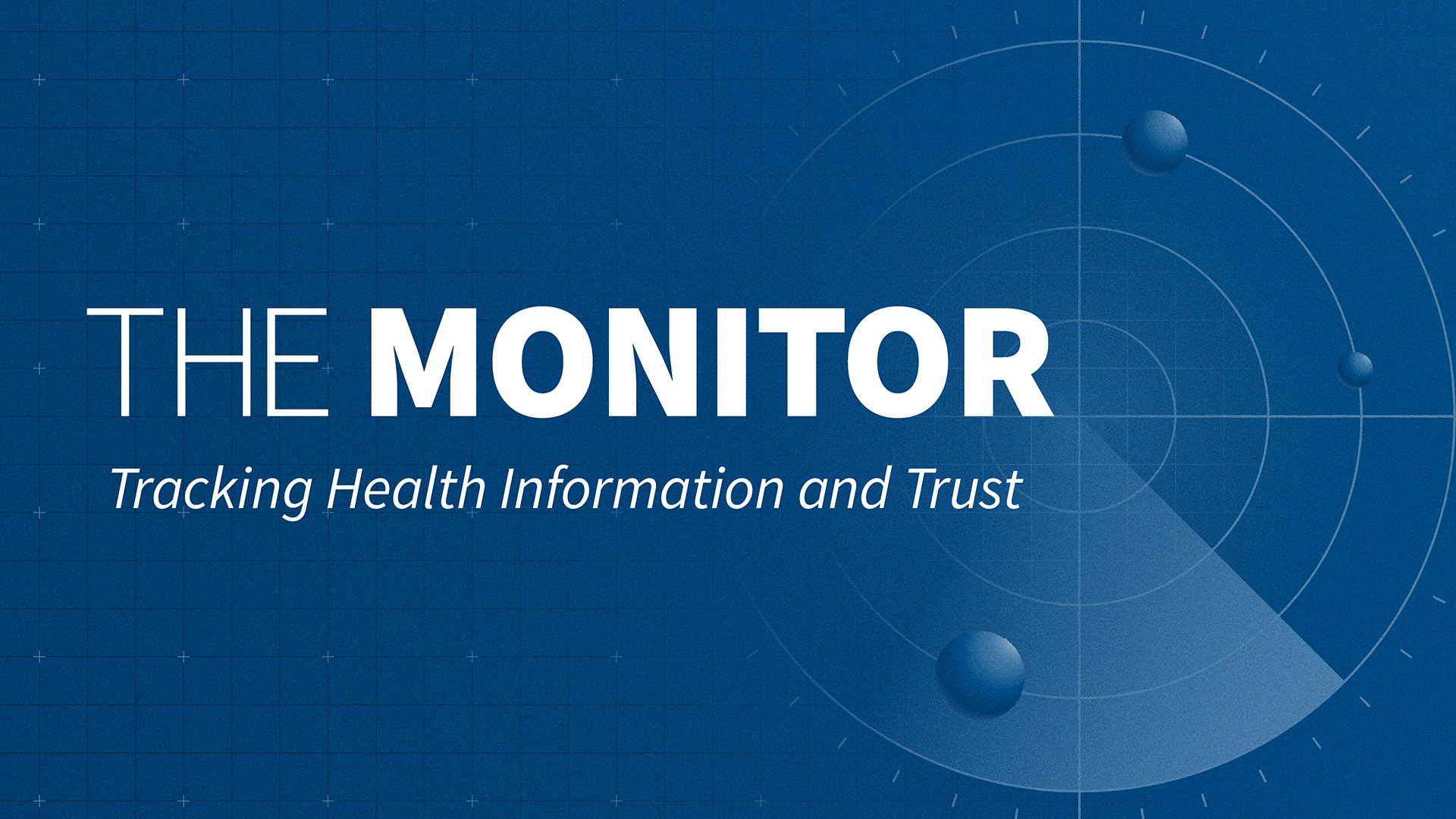Few Trust Most Health Content on Social Media, Autism Claims Follow Thimerosal Policy Shift, and Misleading Narratives About SSRIs in Pregnancy — The Monitor
This volume analyzes findings from the latest KFF Tracking Poll on Health Information and Trust, which show that just over half of adults say they use social media to find health information and advice, but less than half trust the health content they see across an array of social media sites and apps. It also examines false claims linking a mercury-based vaccine preservative to autism, following a federal decision to withdraw recommendations for flu vaccines containing the compound. In addition, it explores misleading narratives about antidepressant use during pregnancy and unproven claims about the health benefits of nicotine.
